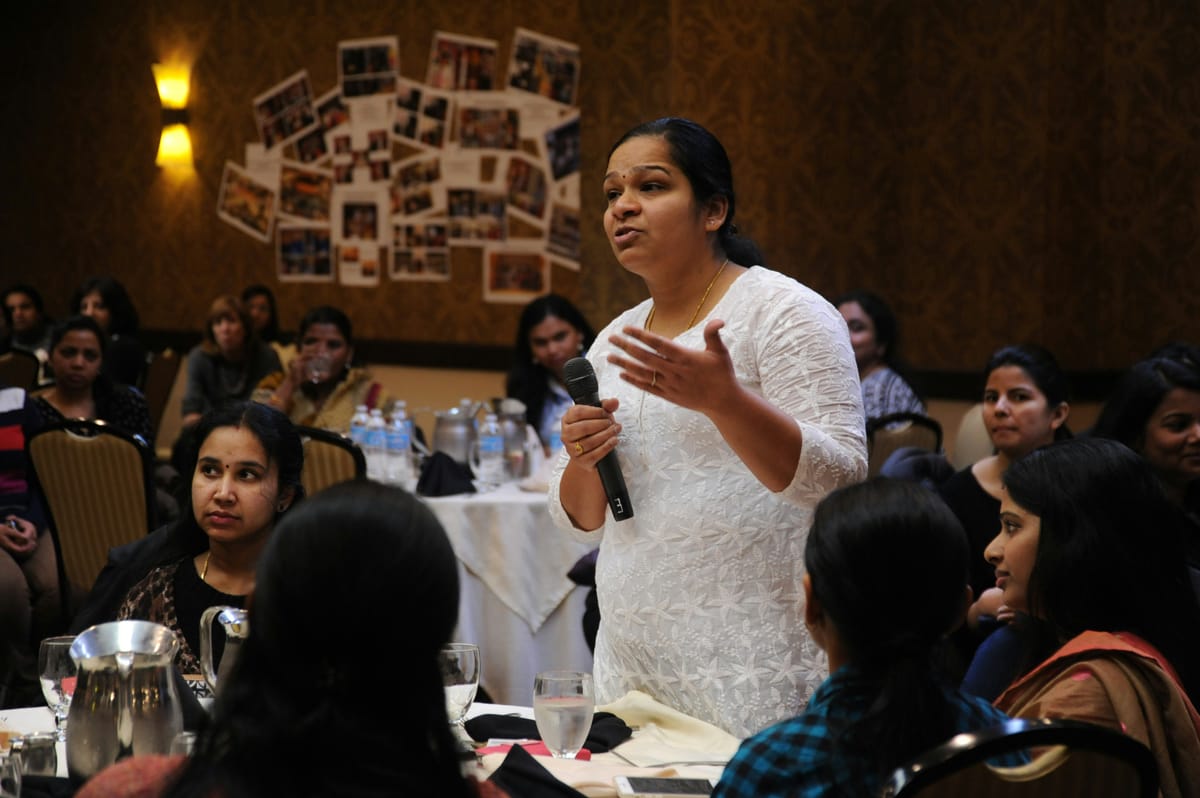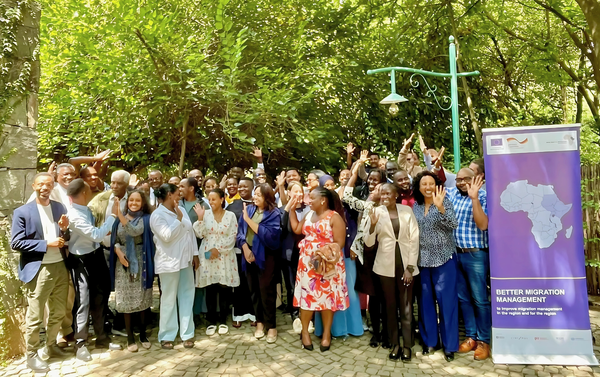Myths about locally led development are hampering transformative change

Donors must empower community groups to make aid more effective, the Indian shrimp industry requires urgent reform of its exploitative practices, and the organized crime rings behind scamming compounds now make US$3 trillion a year.
NGO leaders and development experts report that common misconceptions about localization are hindering progress towards locally led solutions which could reshape the development and humanitarian sectors. In a new opinion piece, leaders from Catholic Relief Services, Caritas Africa, and Transcultural Psychosocial Organization Uganda, along with a former member of the Guinean government, say that myths around funding allocation, decision-making, and ownership by local groups are preventing transformative change within organizations and across the aid system that could make relief and support more effective, sustainable and equitable.
Despite some donor responsiveness towards the idea of locally led development, systemic breakthroughs have been hampered by resistance to change and fear-based assumptions, the authors say. For instance, despite the persistent myth that local organizations already receive a large amount of funding, less than one per cent of U.S. humanitarian assistance and less than 10 per cent of USAID assistance goes to community groups. Spinoffs and affiliates of international organizations inflate the already small amount of funding going to truly locally based institutions, weakening aid transparency and undermining accountability, they claim. Moreover, while some believe that localization shuts out global development partners, in fact international organizations and other stakeholders remain critical in development and humanitarian solutions, with advocates for localization primarily calling for a change in the roles development stakeholders play rather than their elimination from the global aid system.
The myth that grassroots groups do not have the capacity or training to lead effectively is also untrue, they state, citing examples of successful locally led projects that improved cost-effectiveness and sustainability. The readiness gap in local institutions is often more about the robustness of current organizational systems than inherent capacity, and assumptions about civil society capacity in aid-recipient nations should be considered with nuance, says one writer. In reality, new approaches to capacity strengthening that no longer rely on top-down transactional approaches and include local input are having measurable impacts as a direct result of capacity-building support and high-quality investment that is guided by the vision and priorities of the local institution.
As well as increasing direct funding to community groups, funders must also align the size of awards, choice of instrument, and funding timelines with local needs to ensure success, they say. Committing to indirect cost recovery for partners, dramatically increasing the funding that goes directly to them, prioritizing locally led initiatives, giving them authority over development choices, and assisting local organizations to become prime recipients are all effective empowerment strategies.
Meanwhile, experts have also highlighted the pivotal role of data in driving locally led initiatives, saying that community collaborations and cooperatives can use collective data to become active enablers of change and unlock the full potential of locally led development. By convening stakeholders around the data, evidence-based action occurs, facilitating learning, influencing policy, and prompting the co-creation of additional research, assessment studies, and evidence-based training and tools to address knowledge gaps and inefficiencies and strengthen the capacity of local players.
To truly advance locally led development, every aspect of the traditional aid system needs to be transformed, including funding mechanisms, program strategies, and power dynamics, the authors say. Donors and policymakers must trust in the wisdom of communities and their institutions, enabling them to shape their destinies. A more inclusive and responsive approach to aid will help usher in a new era of humanitarian and development endeavors.
Here’s a round-up of other noteworthy news and initiatives:
Corporate Accountability Lab and the Outlaw Ocean Project have conducted extensive investigations into the Indian shrimp industry, uncovering a multitude of concerning issues. These include instances of discrimination, exploitative labour practices such as forced labour and hazardous working conditions, and significant environmental degradation. Their findings shed light on the systemic challenges within the industry, highlighting the need for urgent reforms to protect workers’ rights and preserve the environment.
The head of Interpol said on Wednesday that organized crime rings, which drove a surge in human trafficking and cyberscam centers during the pandemic, have now extended their reach from Southeast Asia to form a global network generating up to US$3 trillion annually.
According to a statement from PICUM and La Strada International, the failure of MEPs in the European Parliament’s committees to fully protect victims from immigration enforcement, despite advancements such as consent for third-party crime reporting and access to legal aid, gives rise to the risk that reporting will be deterred and vulnerable individuals deprived of essential support.
A new research study by HAART and Free The Slaves explores survivor engagement in anti-trafficking organizations in East and Central Africa, emphasizing the importance of inclusive approaches and the active participation of survivors in research and policy development. It highlights the need for organizations to establish clear guidelines, policies, and frameworks to support survivor advocates and leaders, ultimately aiming to enhance survivor inclusion and participation in anti-trafficking efforts.
The EU has announced financial support of €13 million for PROTECT, a new EU-UN initiative aimed at strengthening the rights of women migrant workers, children, and at-risk groups across Cambodia, Indonesia, Malaysia, and Thailand. Led by the ILO, UN Women, UNODC, and UNICEF, the three-year project will focus on promoting decent work and combating violence, human trafficking and migrant smuggling.
The Gangmasters and Labour Abuse Authority (GLAA), Britain’s labour abuse watchdog, has had its funding cut by the UK Home Office amid what charities have called a national scandal in adult social care, with modern slavery helplines recording a surge in calls and the GLAA itself seeing a 400 per cent rise in allegations since the launch of a post-Brexit scheme to recruit care workers from abroad. The Care Quality Commission has warned MPs that modern slavery is now “a feature” of the UK’s social care market.
The Modern Slavery PEC’s latest research examines outcomes for children and young people impacted by modern slavery, showcasing positive results from the Independent Child Trafficking Guardianship service in England and Wales. The study emphasizes the importance of extending the service nationwide, enhancing children’s participation, and maintaining its dynamic and needs-led approach to effectively combat modern slavery.
The United Nations Women’s Peace & Humanitarian Fund (WPHF) has launched a Call for Proposals in Sudan to support civil society organizations to implement projects focusing on the protection of women and girls and on peacebuilding and recovery, as well as supporting local women and young women’s rights organizations through institutional funding.




